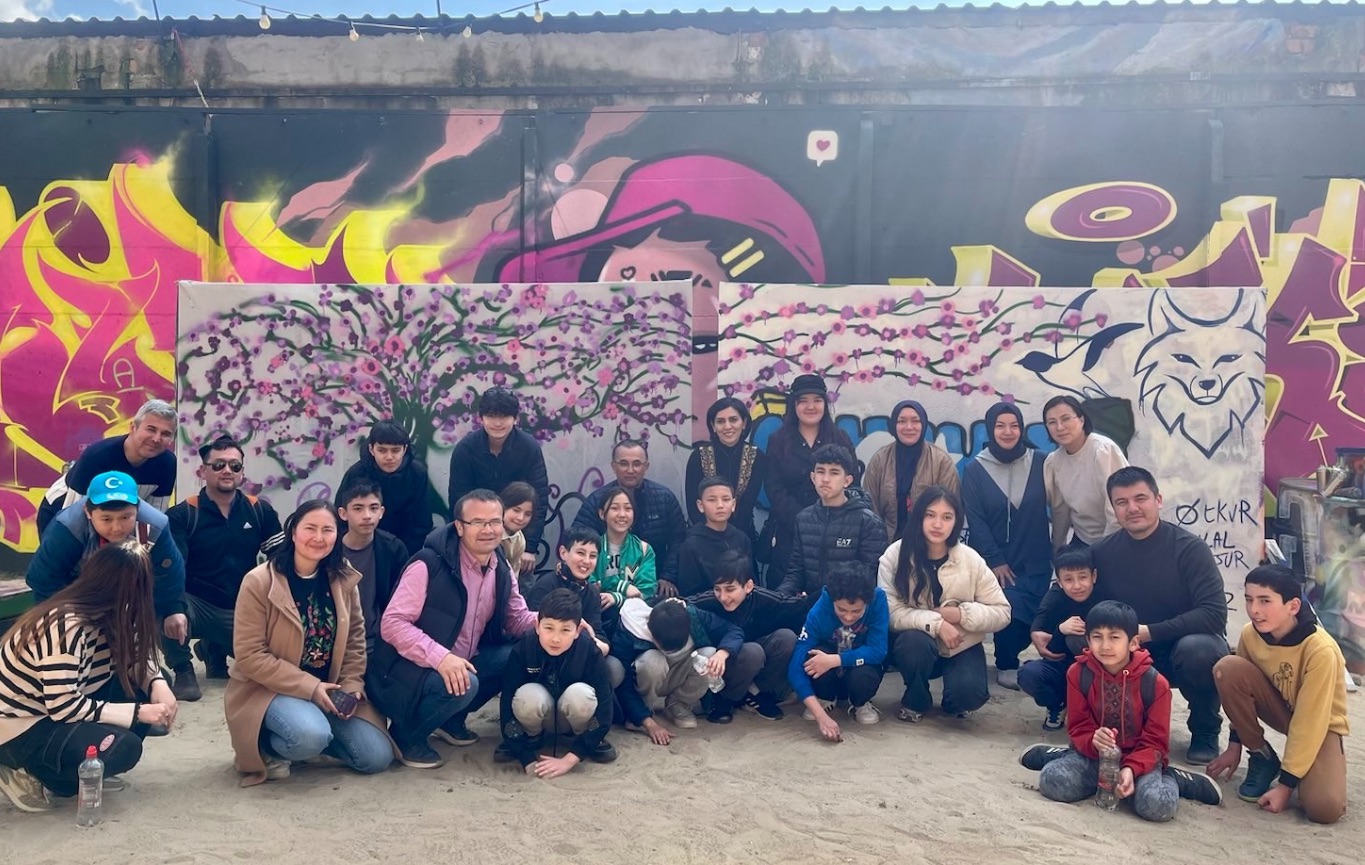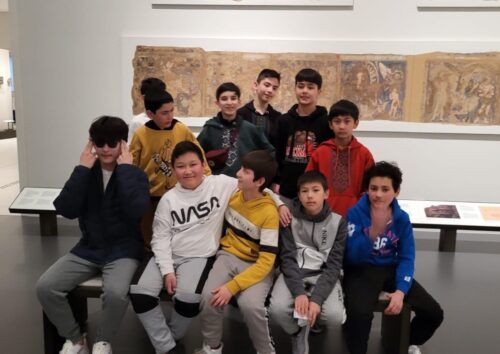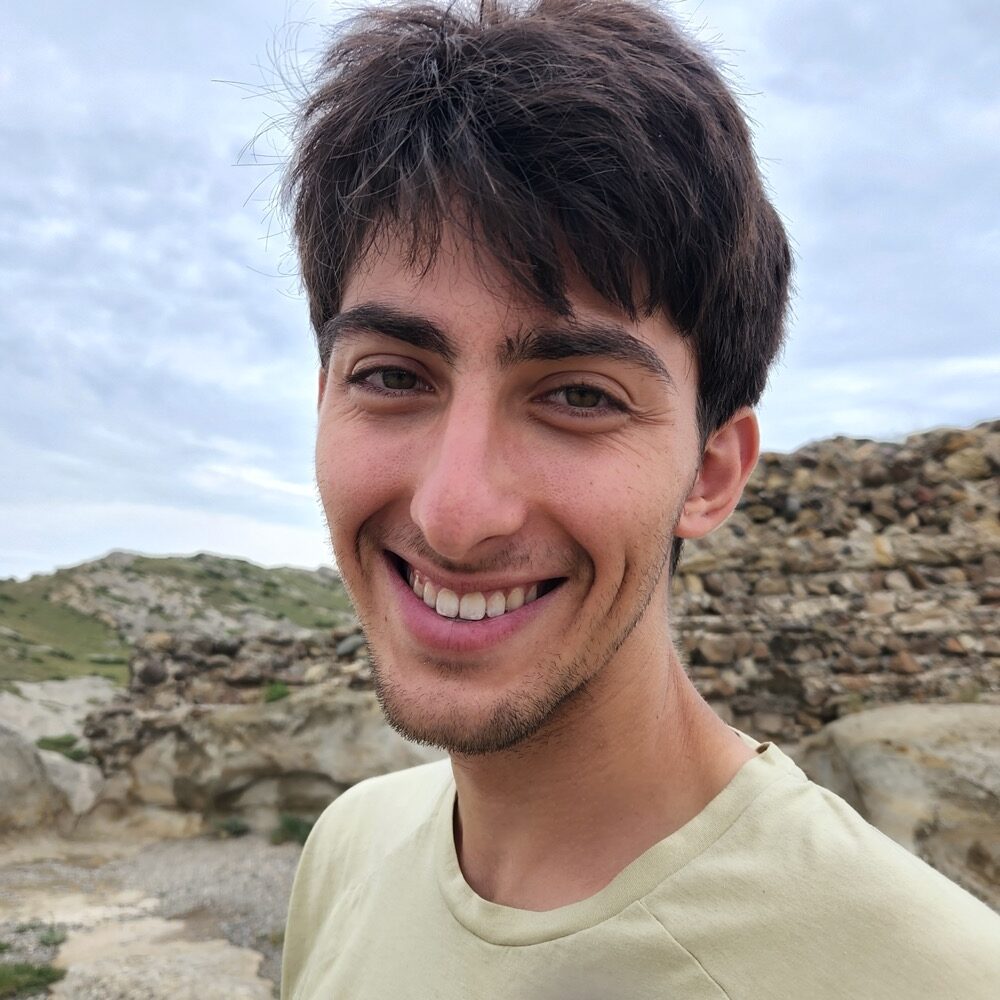A cultural program for young Uyghurs in Germany
Activist Abduweli Ayup is attempting to keep Uyghur culture alive by teaching the younger generation their history and heritage.

While EU leaders try to improve relations with China and the war in Ukraine crowds out other crises, Europe’s Uyghurs are carving out a home for themselves. In early April, dozens of Uyghur children were gathered in Berlin by the scholar and activist Abduweli Ayup for an experimental program in cultural revitalization.
The group, with members from more than nine countries, visited the Humboldt Forum’s ancient monumental Uyghur paintings, the Berlin Jewish Museum’s Holocaust exhibit, and the ruins of the Berlin Wall. Almost a decade ago, Abduweli spent more than a year in prison for opening an Uyghur-language kindergarten in his native Kashgar, the capital of Uyghur culture. But now teaching children in Norway, he recognizes that places like his hometown “have nothing to do with their daily life,” he says. For Uyghur identity to survive, he believes, it must be made relevant for a new generation that has only ever known Europe.
On the first day, Abduweli took the group to see the cave murals at the Humboldt Forum. Relics of the last Buddhist Uyghur kingdoms, they were carted back to Berlin by German explorers over a century ago. Since their modern nationalist movement began in the 1920s, the paintings have allowed Uyghurs to declare, “Yes, we had a great civilization and we’ve been here much longer than the Chinese have,” says Professor Johan Elverskog, a specialist in Uyghur religious history at Southern Methodist University in Dallas. “They can point to the art and say, ‘Whatever, now it’s in Berlin, but they ripped it off the wall at Beziklik.’”
Twelve-year-old Baris agrees. Seeing the paintings was “special,” he says, “because now we’re Muslim, right? Back then, they were Buddhist. And I thought that was really cool — seeing how we have changed.”

Returning to the hostel that evening, Baris’s father — a master of classic Uyghur music who trained with the legendary Abdurehim Heyt — held an impromptu performance with his son in the hotel lobby. The manager, Abduweli reported, was not pleased, but relaxed when a group of Spanish tourists enthusiastically joined in. The concert — held as a meshrep, a traditional gathering for communal entertainment — became part of the daily itinerary for the rest of the program. Abduweli told me that the kids turned one night’s meshrep into a surprise party for one of their new friends — it was the first time he’d heard “Happy Birthday” played on the dutar.
The next day, with the younger kids away at the zoo, the program’s older participants and some of their parents visited the Jewish Museum. It was an emotional low point for everyone I spoke with. “What happened to the Jews is what’s happening to us in a more modern way,” Baris shared. “At first, when I saw everything, I didn’t really think about it, but then when I came home, I just lay in my bed to sleep and just thought about that. And then I understood.”
Abduweli related that later, when the children saw Germans their own age playing on the stone plinths of Memorial to the Murdered Jews of Europe, “they reacted really strongly” and immediately told them to come down. The Germans listened.
On the final day, the group reunited to cover the Berlin Wall with murals of their own. Together with an artist visiting from the Uyghur community in Kazakhstan, the children spent hours planning what they would paint. One design they chose, Abduweli says, was a bird. “They said, ‘If we are birds, we can see our grandmas. If we’re human beings, we can’t see them.’”
Younger kids have a harder time making sense of what’s happening to their families. Atike, a mother of four who chaperoned the program’s British contingent, says when her smallest children see friends spending time with grandparents and relatives, “They’re always asking why our own parents don’t come here, or why we can’t go there…I can’t answer them.”
Baris thinks the program succeeded. “Before, I used to think we’re just a plain old folk group, yada yada,” he says. “But now I know we have a deep history and that’s really cool.” People “have multiple cores that help them go through the day. I think one of them is being Uyghur.”
But despite this new success, no one I talked to wants the Uyghur diaspora to be permanent. When I asked Atike if European Uyghurs are hopeful that they’ll be able to return to their homeland, she told me about her kids’ piggy bank: “They are collecting money right now. They say, ‘One day, if we are going to East Turkestan, we will buy our ticket ourselves.’”






